If you live in the resident halls listed below you will need to test your smoke detector(s) monthly (1st Tuesday)
ALDERMAN:Following are some of the more commonly found fire code violations –
SMOKE DETECTORS AND FIRE SAFETY EQUIPMENT –
EMERGENCY RESPONSES –
FOR MORE INFORMATION –
Housing and Residence Life Safety page – https://housing.virginia.edu/safety
Environmental Health and Safety, Fire Safety page – https://ehs.virginia.edu/Fire-Safety.html
Welcome to the University of Virginia Environmental Health and Safety (EHS) Fire Safety Office. The overall goal of the Fire Safety Team is the protection of life and property. We strive to identify and prevent conditions and/or or actions that may cause fires to start and spread. Through training we can prevent the risk of fires.
Email: fire-safety@virginia.edu OR call 434-243-1711
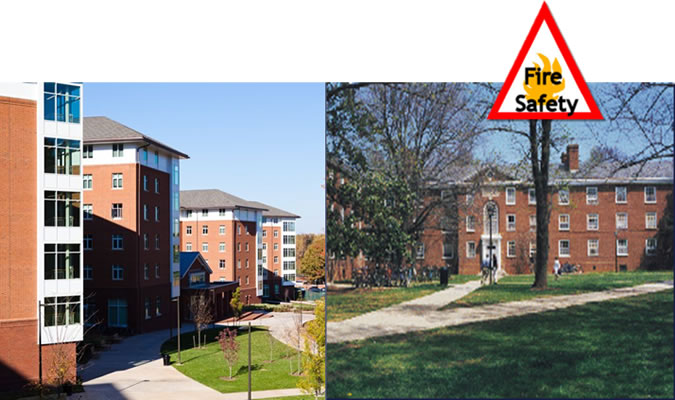
Safe Cooking Practices
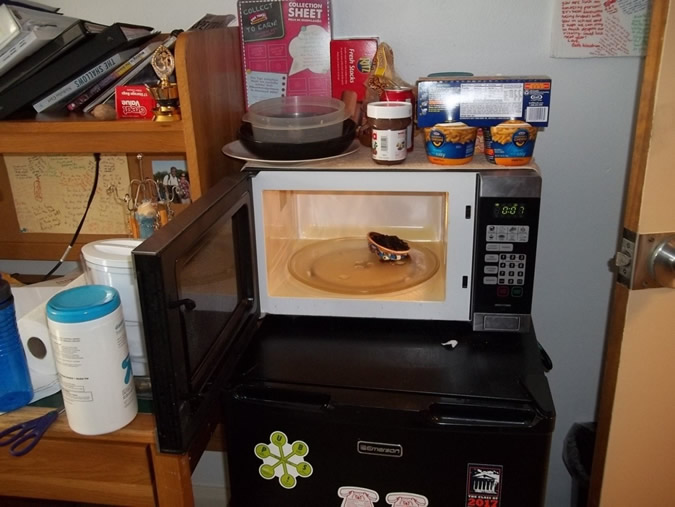
Do not store combustibles on or near microwaves.
Unattended Cooking
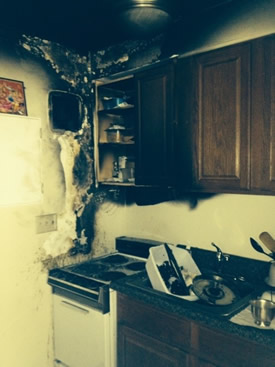
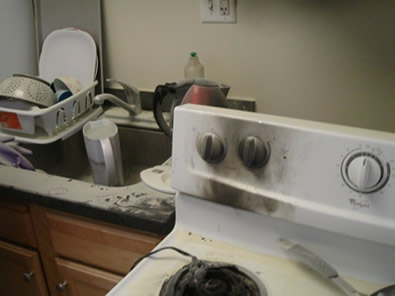
NEVER leave cooking unattended. Unattended food has been the cause of multiple fire alarms and fires. These were actual fires on the campus of UVA caused by food left unattended. Don’t let this happen to you!
Banners and Flags
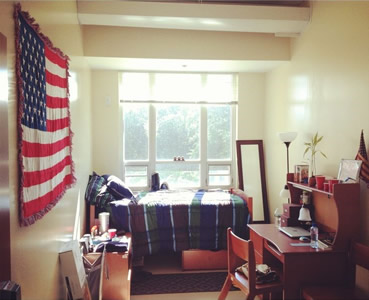
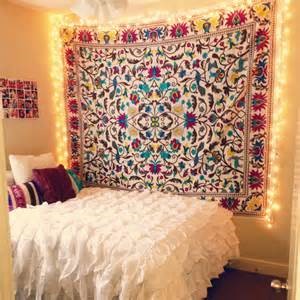
No banners or fabric flags are permitted on walls.
Ceiling Decorations
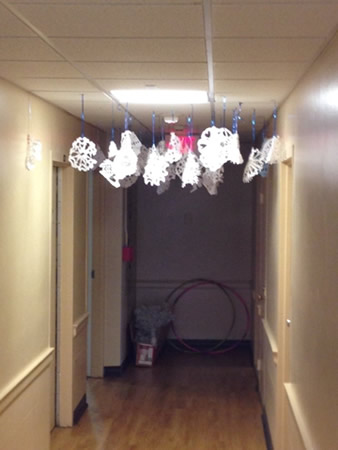
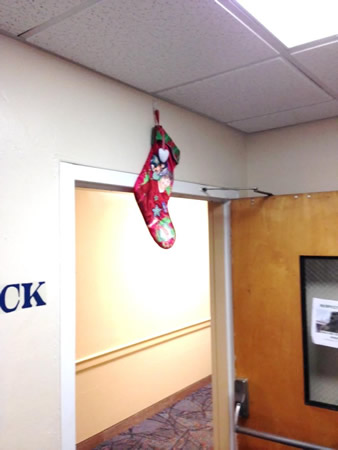
No decorative materials shall be suspended from ceilings.
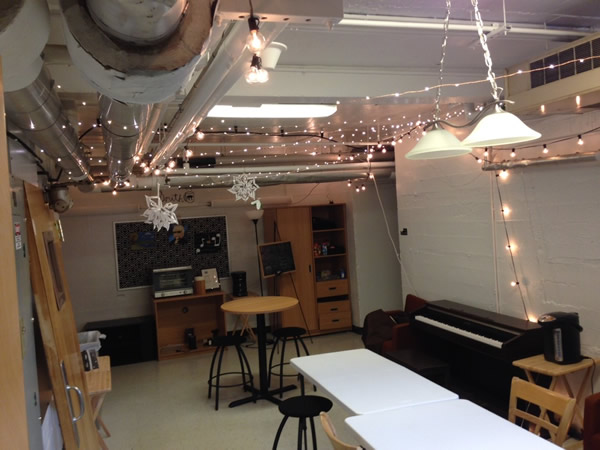
Items may not be attached or suspended from sprinkler or heat pipes.
Curtains or Drapes
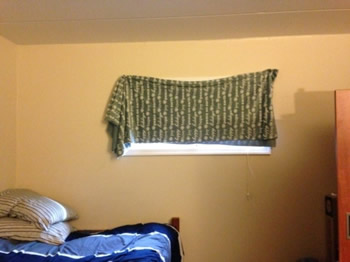
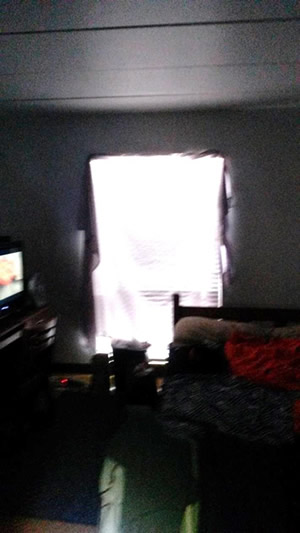
No curtains or drapes on windows or walls.
Decorative Lights
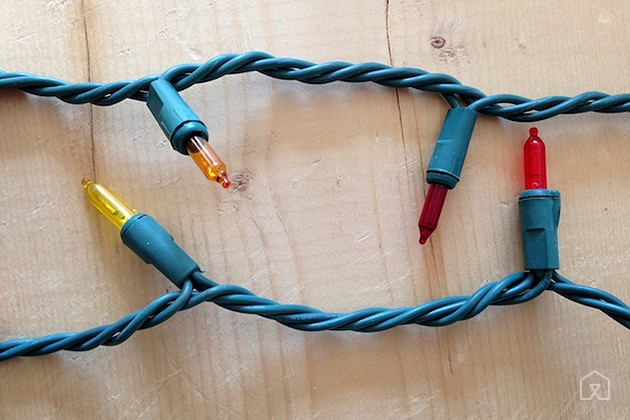
You may not connect together more than three (3) strands of lights originating from the same outlet.
Decorative Trees
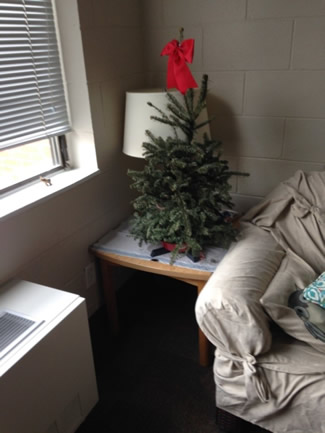
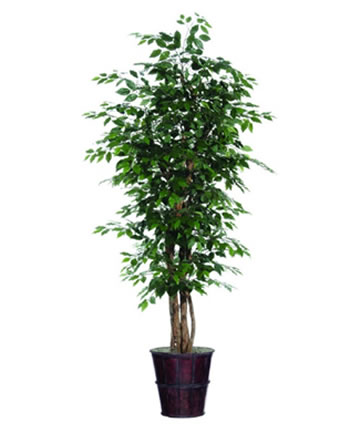
Live and artificial decorative trees are prohibited.
Doors
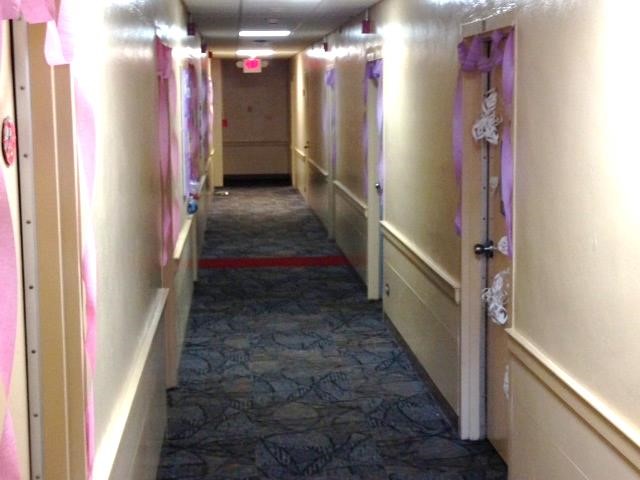
Combustible material on doors or walls of hallways is prohibited.
Over Door Racks
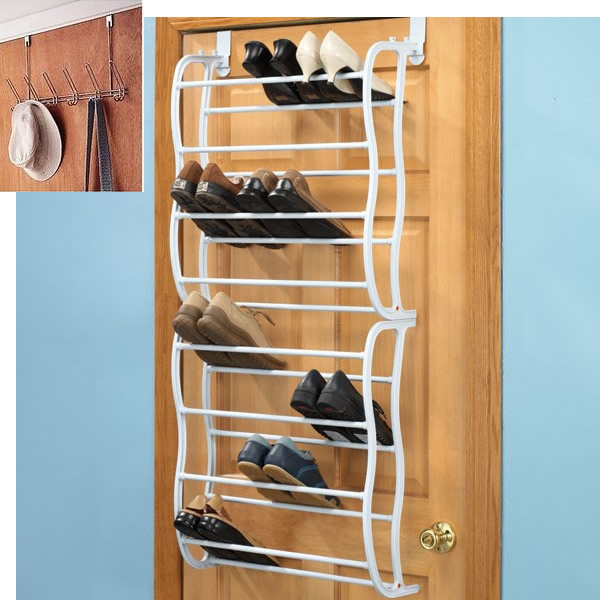
No over-the-door shoe racks, towel racks, mirrors, or other hanging devices are permitted on doors.
Egress
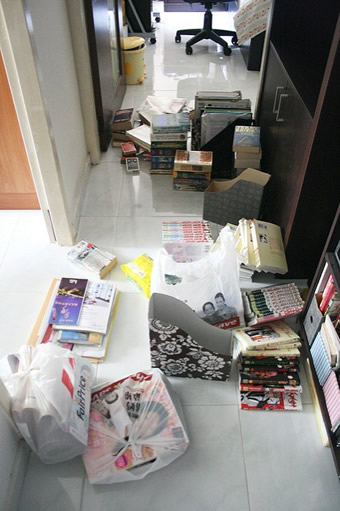
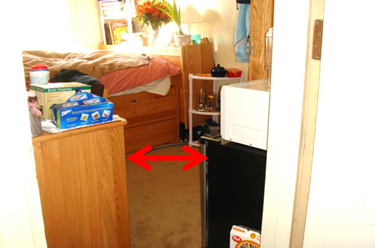
Always maintain a clear egress the width of the door opening. This will give you a clear path to exit in an emergency or assist firefighters attempting a rescue.
Trip Hazards
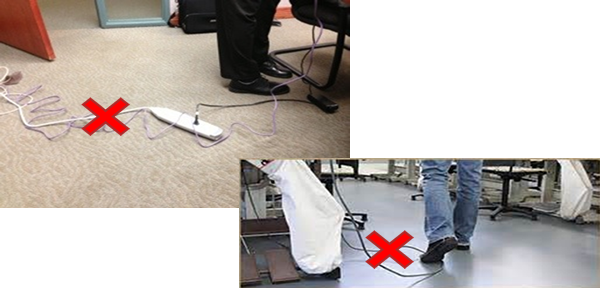
All electrical cords must be out of the way of foot traffic. Cords across aisles or walkways create trip hazards.
Propped Open Doors
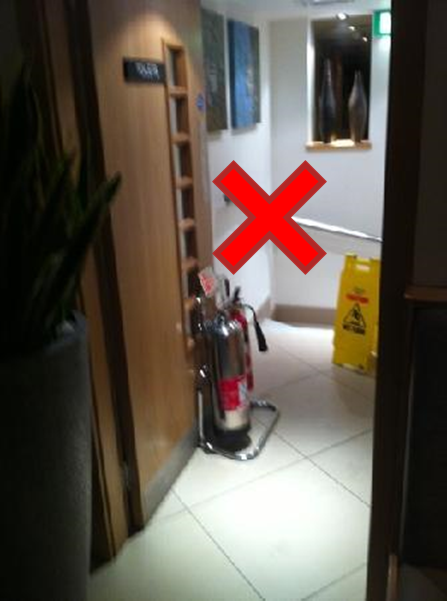
The door above should not be propped open.
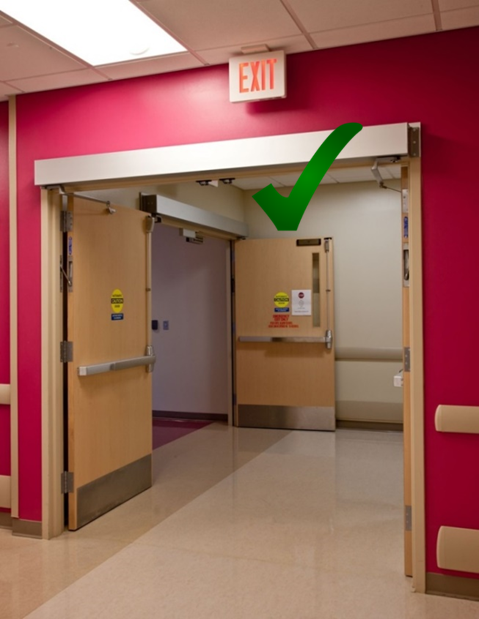
The fire doors above have a self-closing mechanism that will automatically close in the event of a fire alarm.
Ceiling Storage
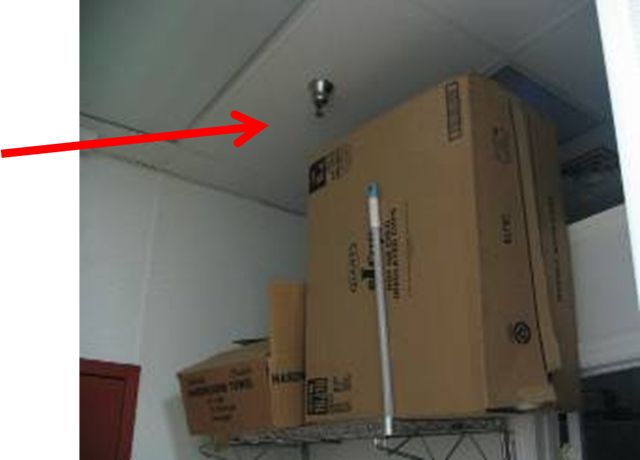
Nothing should be stored close to sprinkler heads. Clearance should be at least 18 inches from ceiling at all times.
Hallway Storage
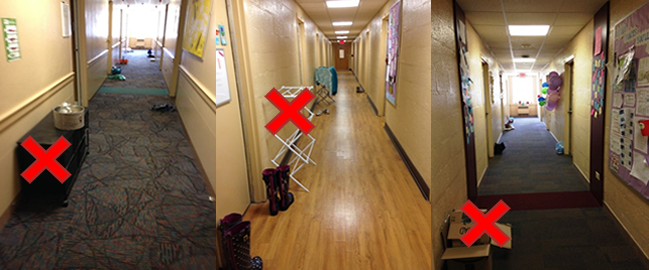
No furniture, shoes, clothing, boxes or clutter shall block egress. Tripping over personal items left in hallways can cause you to fall and injure yourself during an evacuation. Should there be an actual emergency, these items will hinder emergency response personnel from safely entering the facility and responding to the situation.
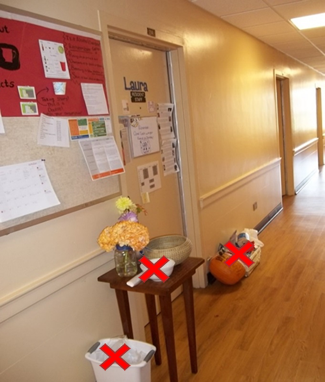
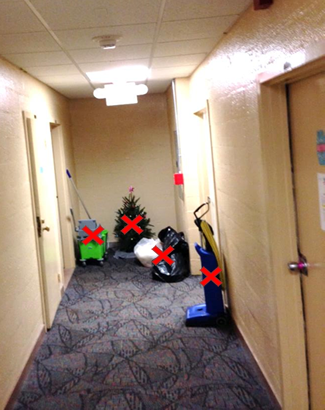
Room Storage
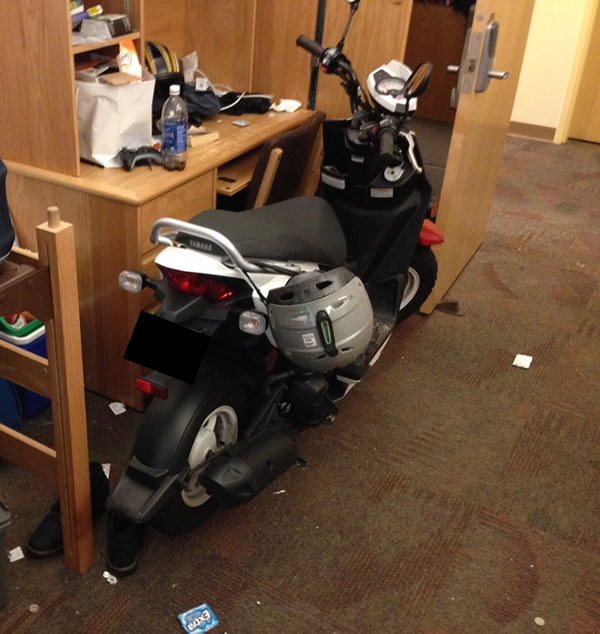
At no times should a motorized vehicle be stored in a room.
Stairwell Storage
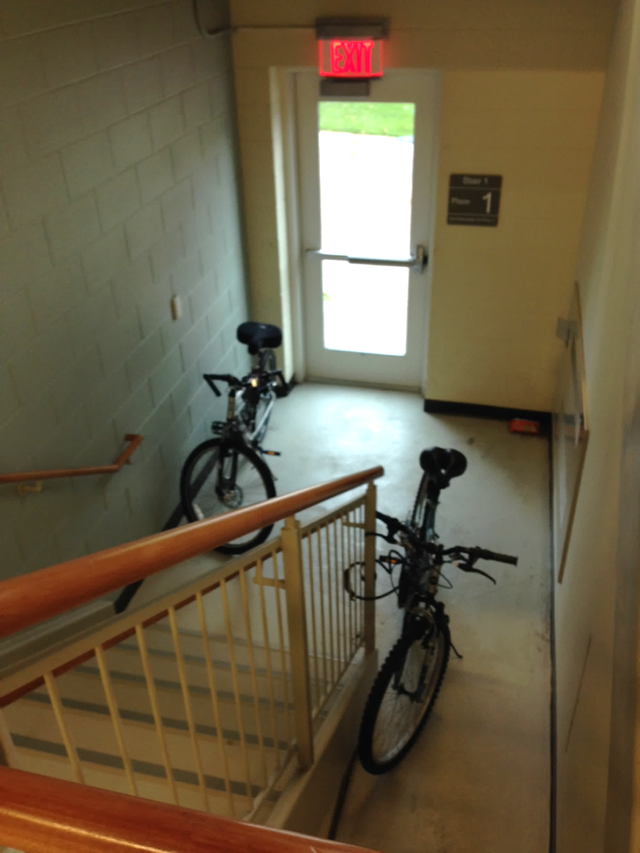
Bicycles should not be left in egress stairwells, but be secured at bike racks. As with anything else, this is an obstruction to means of egress creating a safety hazard in the event of an emergency evacuation.
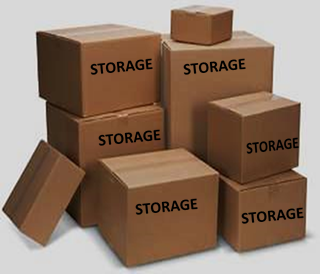
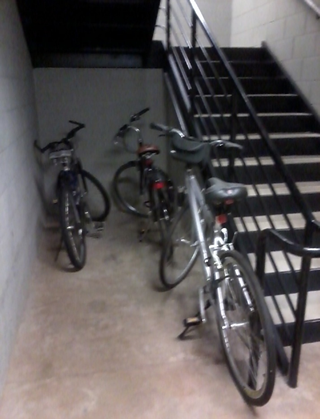
No storage on stairwell landings or under stairwells.
Extension Cords
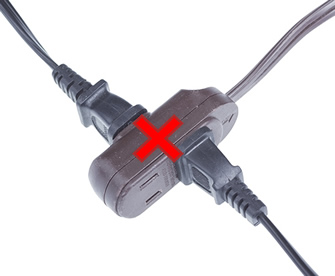
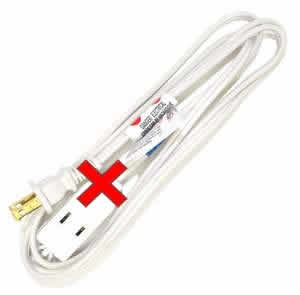
Extension cords are prohibited.
Non-Fused Multi-Plug Adapters (Gang Plugs)
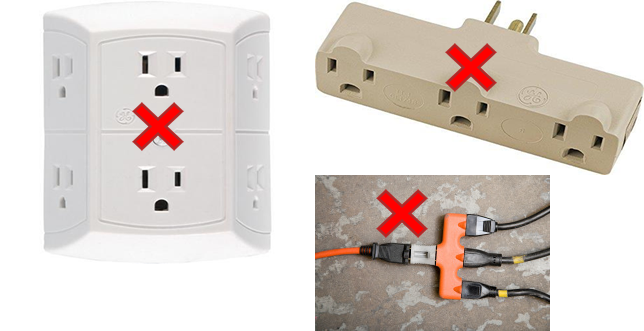
Non-fused electric outlet multiplying devices may not be used under any circumstances (gang plugs). They do not have a built-in circuit breaker or an on/off switch).
Power Strips
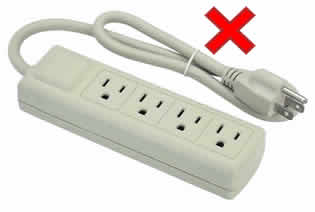
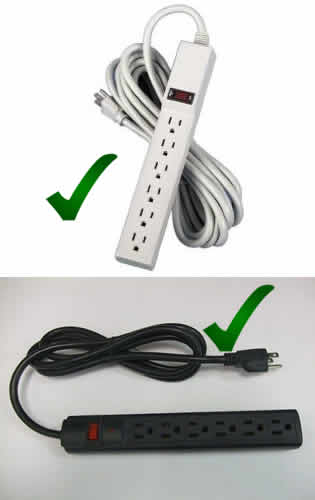
Use power strips instead of extension cords. Acceptable power strips on the right are UL approved, have a built-in circuit breaker and an on/off switch. The power strip on the left is unacceptable and does not have a circuit breaker or switch.
Daisy Chained Power Strips
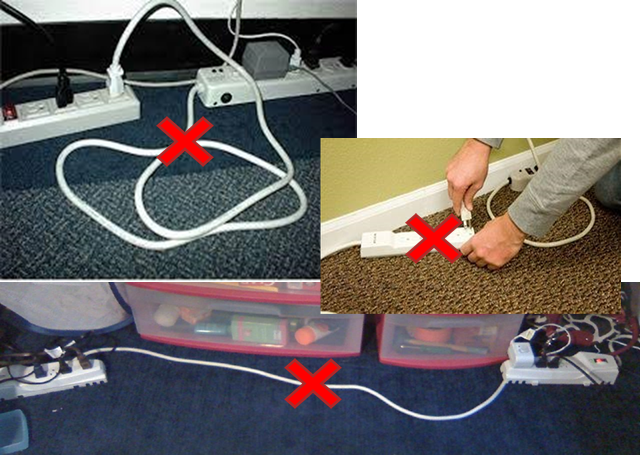
Power strips must not be connected in a series (daisy chained) to create a longer cord or more outlets.
Unsupported Power Strip
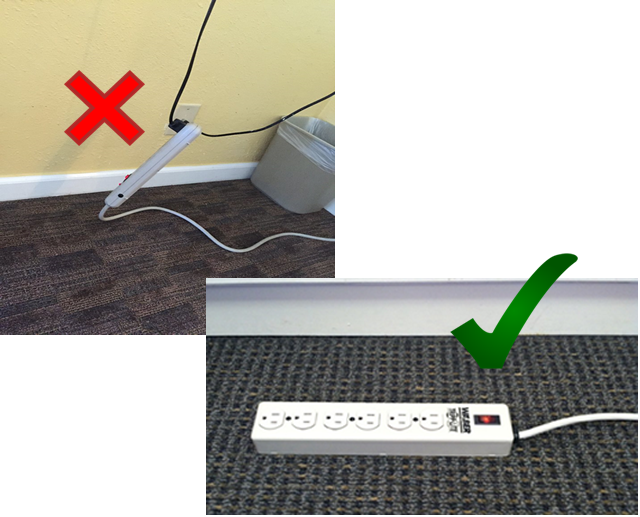
Power strips must not hang by the cord, but should be supported on the floor or other flat surface.
Mats and Carpeting
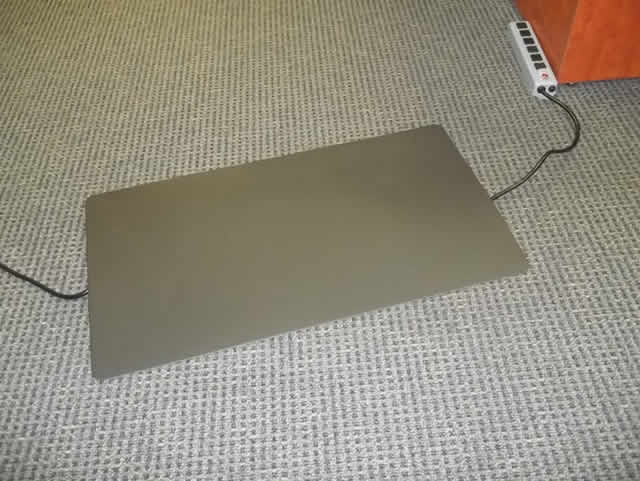
Do not place power cords under mats or carpeting.
Trip Hazards

All electrical cords must be out of the way of foot traffic. Cords across aisles or walkways create trip hazards.
Fire Drills
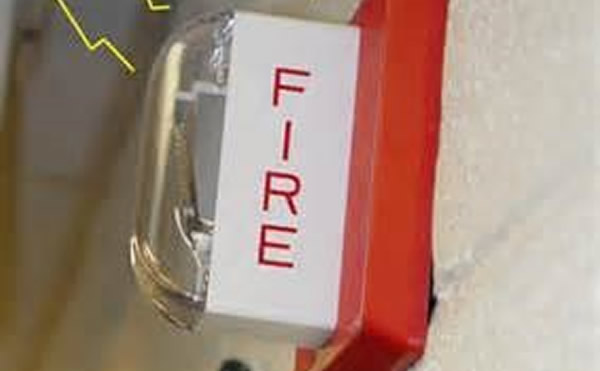
Fire drills are mandated by the Governor and General Assembly. You are required to exit the building when a fire alarm sounds. You should go to the designated area for your facility. Do no re-enter the building until the appropriate authorities (Fire, Police, EHS Fire Safety) have verified the building is safe, and has informed everyone that re-entry is now permissible. Never assume a fire alarm is a drill.
Pull Stations
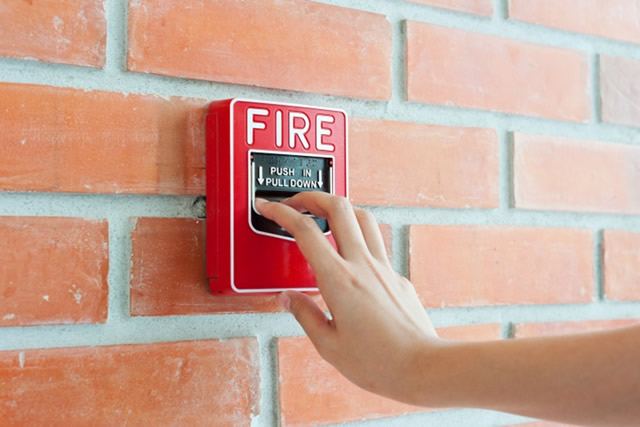
Pull stations should never be pulled unless there is a fire or an emergency. Illegally activating a pull station is a crime; Illegal activation will cause emergency responders to respond needlessly, when they could be responding to an actual emergency.
Smoke Detectors
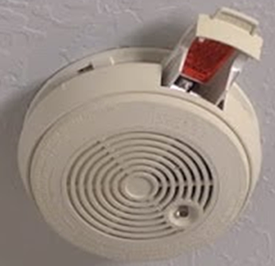
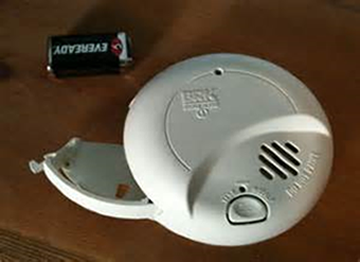
Smoke Detectors should not be taken down, covered, nor have their batteries removed. If the alarm starts to chirp, this may be a warning that the battery is low and needs replacing. Contact Residential Housing to correct the problem. REMEMBER, working smoke detectors save lives.
The following Residence Halls require monthly testing of smoke detectors (the 1st Tuesday of each month).
Alderman: Courtenay, Dunglison, Fitzhugh;
Brown College (All areas): Davis, Gildersleeve, Harrison, Holmes, Long, Mallet, McGuffey, Peters, Rogers, Smith, Tucker, Venable;
Hereford College (All areas): Johnson, Malone, Norris, Weedon, Whyburn;
Courtesy Inspections
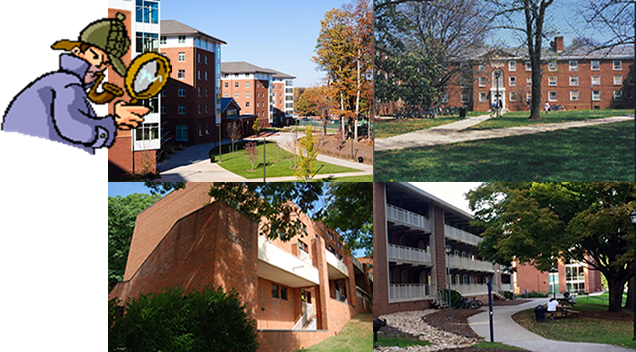
Each year the UVA EHS Fire Safety Team provides "courtesy" fire safety inspections in Residence Halls. These inspections are performed to assist students by educating you on fire safety hazards that can cause harm to life and personal property. Life safety is our main concern! Remember, EHS Fire Safety is here to help and protect you.
State Fire Marshal Inspections
The State Fire Marshal inspects each residential area annually for fire code violations. Any area found to be in violation shall be re–inspected. Any area still in violation of code or Housing & Residence Life regulations is subject to judicial action and possible removal from University housing. Residents will receive email notification when the inspections will occur. Residents of spaces found in violation will receive notice via email of the violation, as well as a follow–up from a resident staff member. Spaces in violation will be re–inspected until the violation is corrected.
Candles and Incense
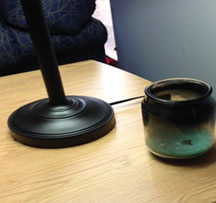
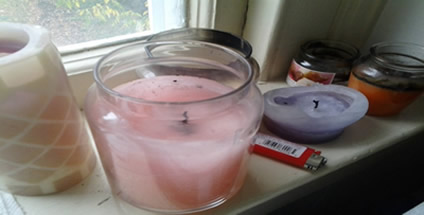
Possession of candles or incense is prohibited. Lighter fluid, gasoline, propane or other flammable liquids are not allowed.
Housekeeping
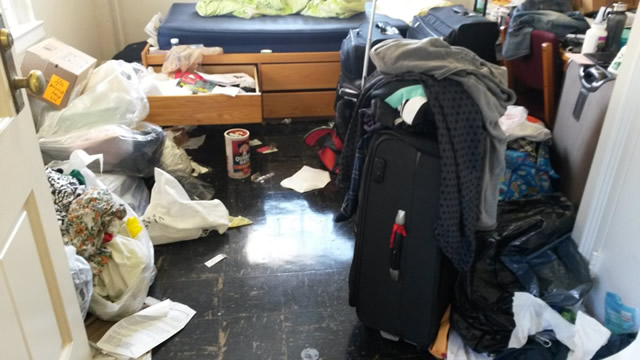
Rooms must be clear of excessive combustibles and maintained in an orderly fashion. Do not place clothing or any object behind doors that will prevent it from opening all the way.
Grills
No open flame or open burner appliances of any kind are permitted.
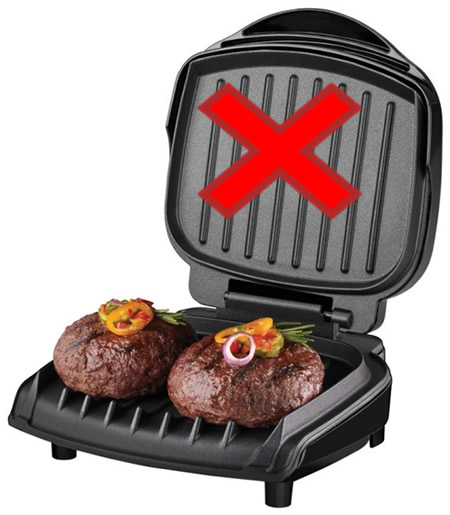
George Foreman® type grills are prohibited.
No open flame or open burner appliances of any kind are permitted.
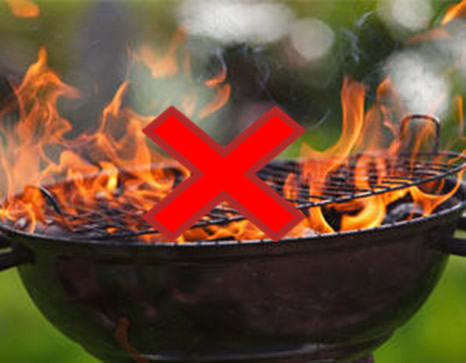
Open Flame Grills are prohibited.
Space Heaters
No open flame or open burner appliances of any kind are permitted.
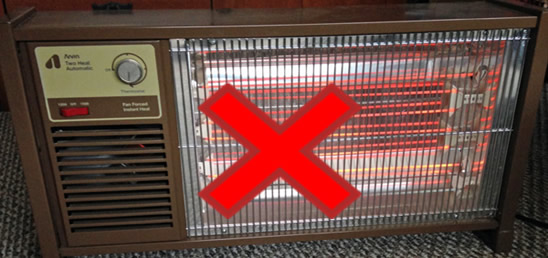
Space Heaters are prohibited.
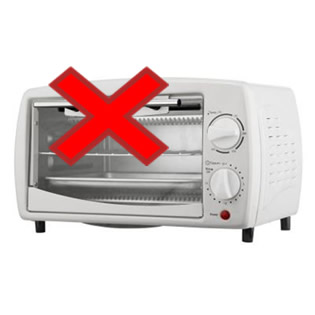
Toaster Ovens are prohibited.
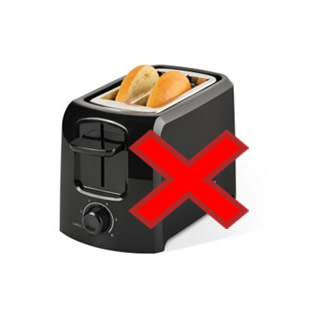
Toasters are prohibited.
Woks
No open flame or open burner appliances of any kind are permitted.

Woks are prohibited.
Halogen Lamp
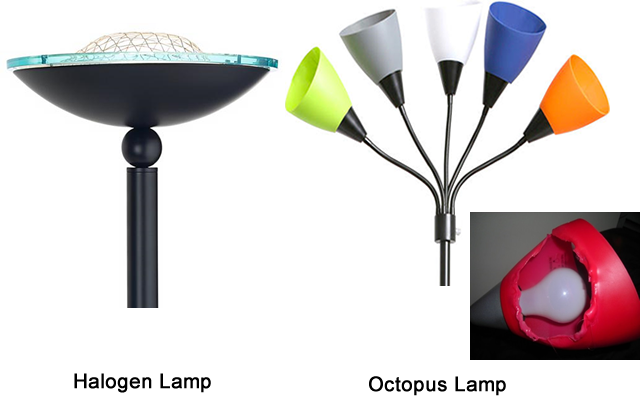
Halogen and octopus lamps are prohibited. High heat causes the shades to melt. Always use the approved wattage bulb for your lamp.
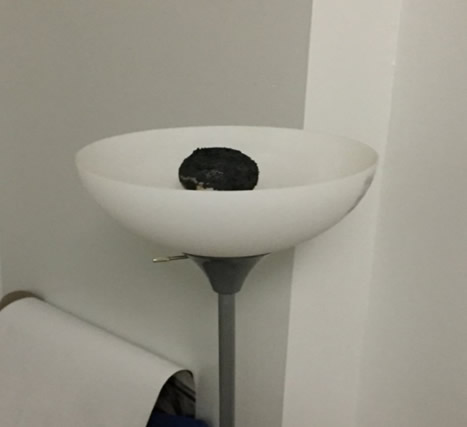
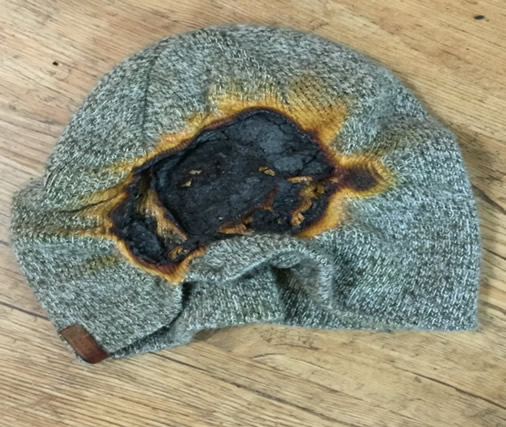
Even with approved lamps, do not place items on or near the lamp. This hat was placed on the bulb to “dry” and actually caught fire.
Hoverboards
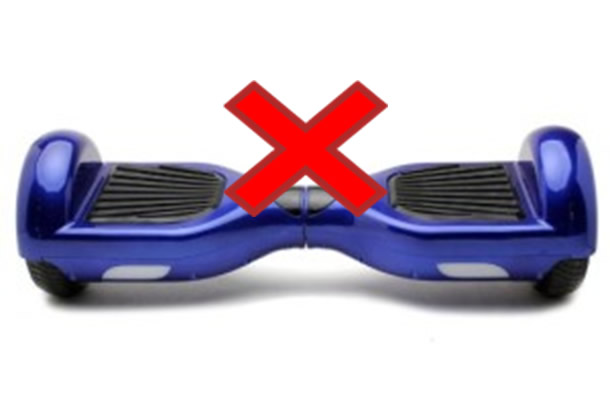
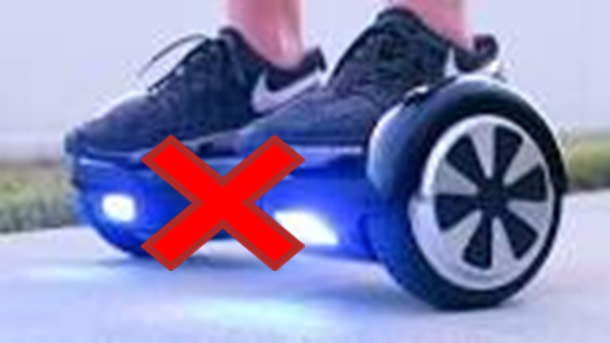
Self-balancing electric wheeled boards (Hoverboards) are prohibited. UVA has issued a policy on the use of hoverboards. The policy can be viewed @ uvapolicy.virginia.edu – SEC-036
Unattended Electrical Items
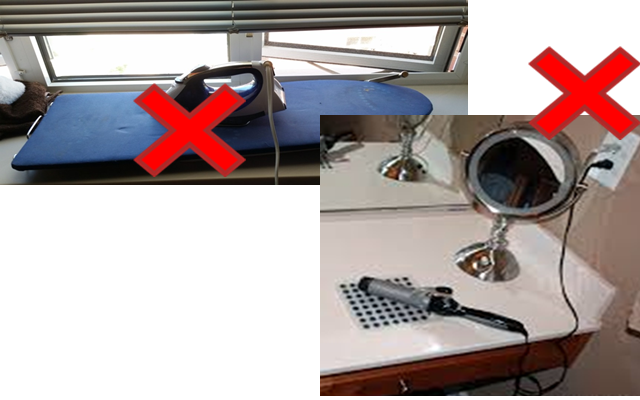
Irons and curling irons should never be left unattended. Always "unplug" these items when not in use.
Fireplace Training
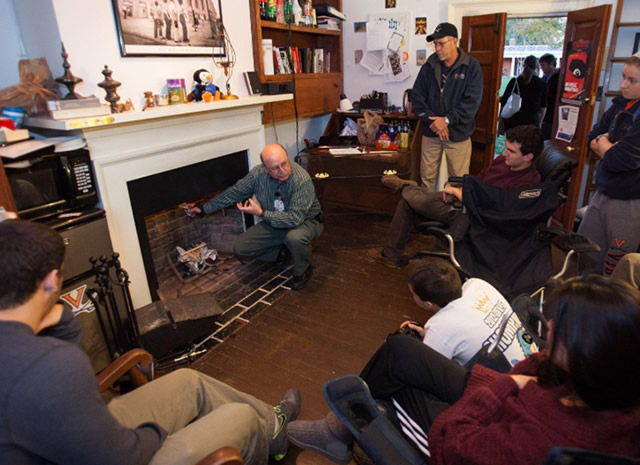
Lawn and Range residents must attend fireplace training prior to use of fireplaces. This training describes basic awareness when starting a fire and after the fire is lit; the do’s and don’ts when using the fireplace, and explain smoke detectors and fire extinguishers.
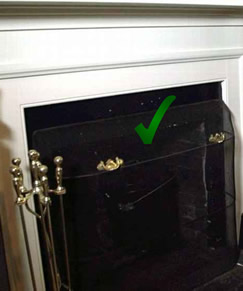
Fireplace screen in place.
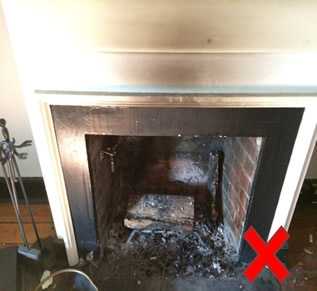
Fireplace screen removed.
Charred Logs
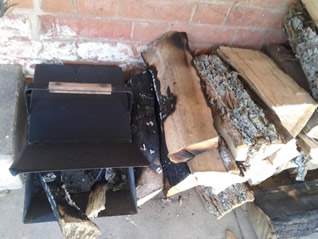
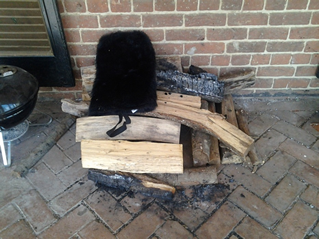
Charred logs should never be removed from the fireplace. Burnt logs on wood piles can re-ignite causing a fire.
Resident Advisor (RA) Training
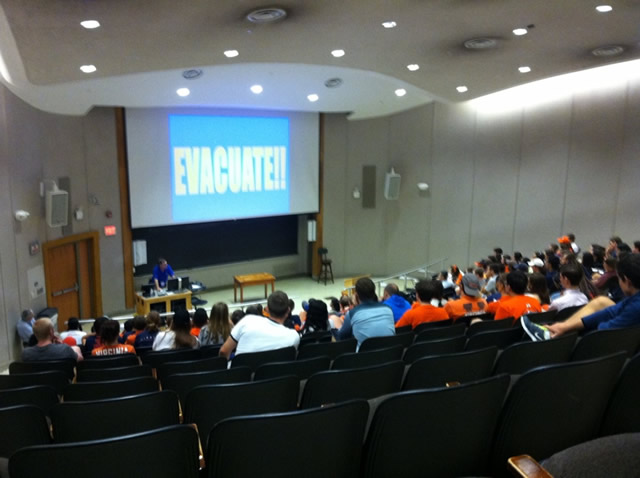
RA’s are trained at the beginning of each school year on fire safety issues. If you have questions regarding your dorm, you should contact your RA.
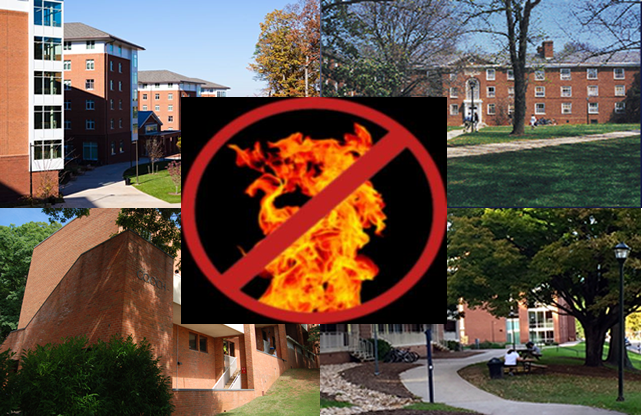
By being proactive, we can prevent fires from occurring in Residence Halls.
REMEMBER
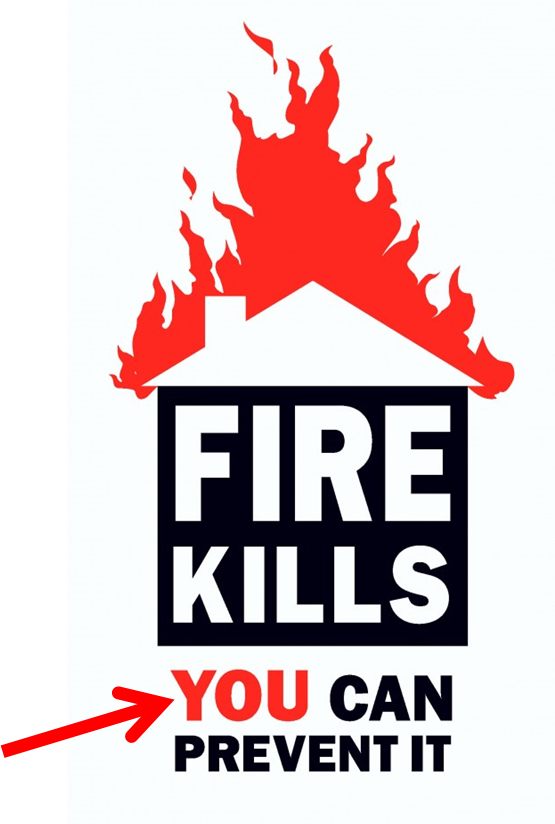
Take safety precautions. You can prevent fires from happening!